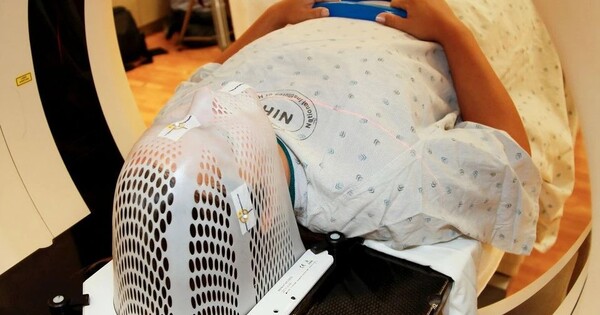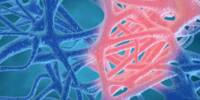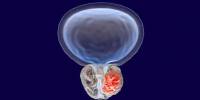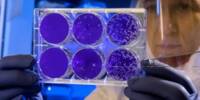Aspirin hydrogels are an intriguing area of study for healing radiation wounds. Radiation injuries, whether caused by medical treatments such as radiation therapy or accidental exposure, can cause severe tissue damage, resulting in discomfort, inflammation, and delayed healing.
Radiation is an effective treatment for cancer, but chronic exposure can harm the skin. Radiation-induced skin injuries are painful and increase the risk of infection and chronic inflammation.
Now, researchers in ACS Biomaterials Science & Engineering report an aspirin-containing hydrogel that mimics the nutrient-rich fluid between cells and accelerates healing of skin damaged by radiation in animals. With further development, the new salve could provide effective and rapid wound healing for humans.
A common anti-inflammatory drug, into a glycopeptide-based hydrogel to create a multifunctional wound dressing for radiation-induced skin injuries.
Jiamin Zhang, and Wei Wang
Most cancer patients may develop radiation-induced skin harm, which may include redness, discomfort, ulceration, necrosis, and infection. There are only a few therapies for these wounds, the most common of which are debridement (surgical removal of injured skin) and hyperbaric oxygenation. Wound dressings comprised of hydrogels are gaining popularity because they are simple to apply and provide a moist environment for healing that is similar to the inside of the body.
Aspirin hydrogels are a type of drug delivery system where aspirin is incorporated into a hydrogel matrix. Hydrogels are three-dimensional, hydrophilic polymer networks that can retain large amounts of water. They are used in various medical applications due to their biocompatibility and ability to release drugs in a controlled manner.
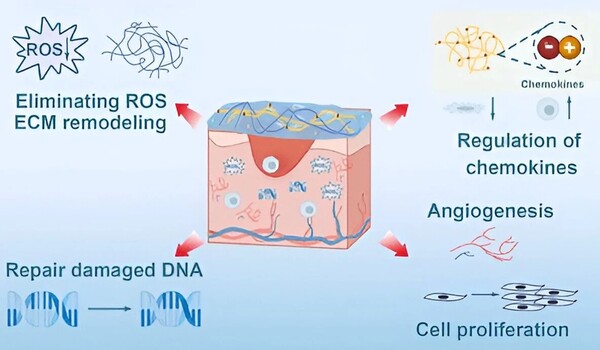
Glycopeptide-based hydrogels are especially promising: In laboratory and animal studies, the nanofiber structures have promoted cellular growth and regulated cell adhesion and migration. A research team led by Jiamin Zhang, Wei Wang, Yumin Zhang and Jianfeng Liu proposed loading aspirin, a common anti-inflammatory drug, into a glycopeptide-based hydrogel to create a multifunctional wound dressing for radiation-induced skin injuries.
In laboratory studies with grown cells, the researchers discovered that the aspirin-containing hydrogel scavenged reactive oxygen species, repaired DNA double-strand breaks, and suppressed radiation-induced inflammation without impacting cellular growth.
In mouse models of radiation-induced skin injury, the researchers discovered that dressing wounds with the salve for three weeks reduced acute injuries and accelerated healing, indicating that it has the potential to be an easy-to-administer, on-demand treatment option for reducing radiation damage and promoting healing in humans.
